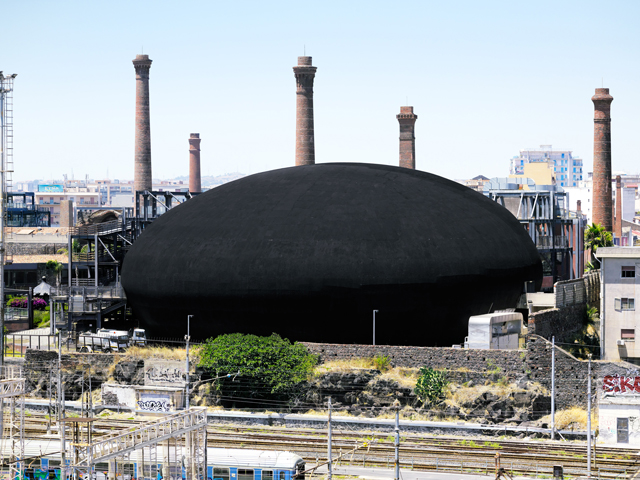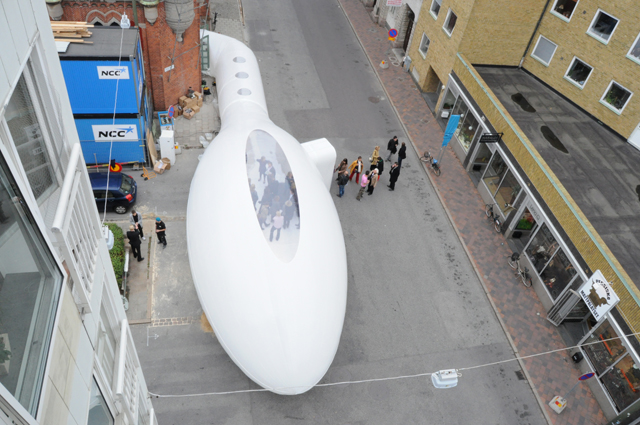MODERN AND CONTEMPORARY HISTORY
interview with Valerio Mastandrea by Boris Prosperini.
This is a simple and contemporary story. It is a story in which who has it all, wins, is happy and stays alive.It is a story in which who has nothing, is sad and then dies. This happens every single day, it happens in the many construction sites that take place in the amazing territories of the Italian peninsula, it happens regularly without ever getting bored. The rich feeds his idiotic brain, his soul, his stomach together with his avarice. The poor is obliged to execute his dignity, to lose the love for his job and if necessary also his existence. Sometimes this story gives some amazing and engaging moments. It lets us forget, erases the memories of the difficult fights to gain the right to work, it makes everything more simple and contemporary. The dark side of society reflects itself in this story, which continuously laughs at itself, making useless the wonders it likes to cause. This story never extinguishes, it’s as if time does not exist in it, it’s as if it feeds off from those mistakes that are made, remaining motionless in the constancy of its global tragedy. However change, the strongest enemy of this story, tries to build a different future and causes the unexpected in the boardroom, it uses time as a lab for research. Trevirgolaottantasette (Everyday) _ a short film directed by Valerio Mastandrea, produced by Alberto Leotti for Minollo Film in collaboration with the San Marco Movies Production. Winner of the Silver Ribbon in Rome in 2005 and in competition at the 62nd Film Festival in Venice. The title is not a cryptic code, but the average number of crude deaths at work in Italy in the middle of the first decade of the twenty-first century.
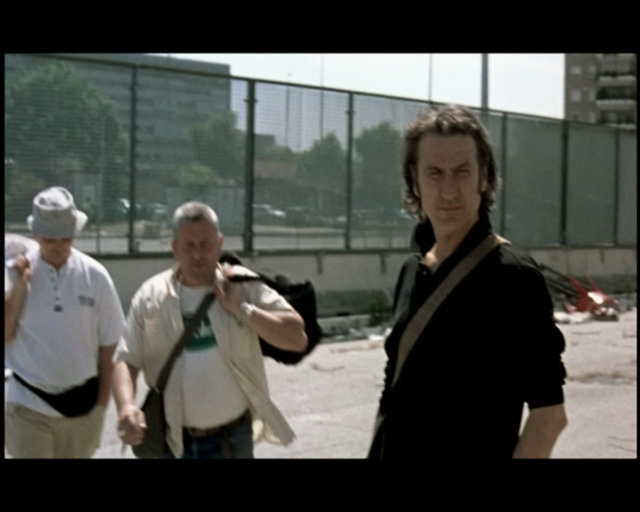
BP: The theme is timely and dramatic. How did the idea for project come to you?
VM: The film was written by Daniele Vicari (maximum speed, the horizon events, and the next Diaz) whom was supposed to shoot it. Then his prime opera lifted off and the project remained in the drawer. A few years later I asked him if I could hold it in my hand because of the topic and my need to shoot something. The subject is damn hard and very contermporary with no rapid and concrete solution. Making films for me (as an actor and who knows maybe one day a director) is a way to keep an eye on reality, a way not to pretend that nothing is going on. Hence the marriage of this terrible story and the desire to tell it.
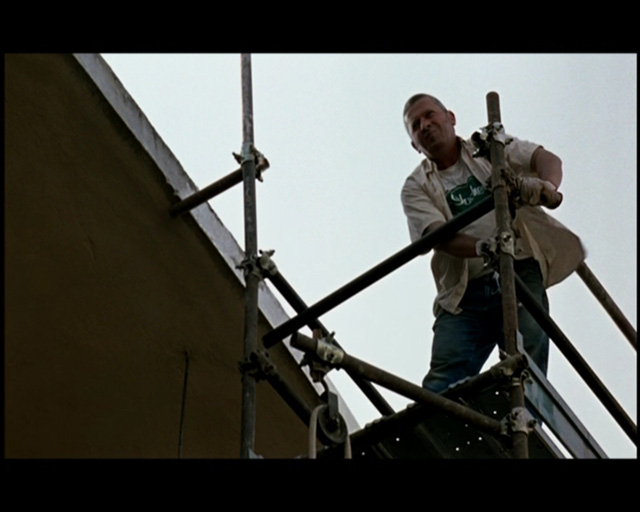
BP: The suburbs seem to be places where people meet but do not collide, where the urban non-places become alienated and sad. The short film is set in the outskirts of Rome, which one? What ties do you have with these places?
VM: The choice of the venue did not really take this into consideration. We needed a site where the dilapidated hurry to finish and the superficial respecting of the rules the rules were the keys to the drammatical outcome. Among the actors there were real workers, even foreigners, as it really happens. My relationship with the suburbs of this city is a relationship of curiosity and lack of prejudice.
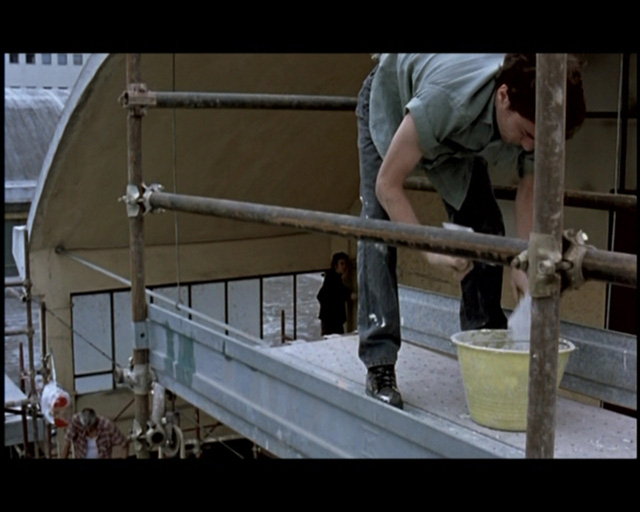
BP: There is a phrase repeated several times, you are a generation burnt from the beginning emphasizes and creates a greater emotional instability. Why the choice of this phrase?
VM: That is a phrase that came at the moment. It was quite peculiar that a man who gets up every day at six o’clock and goes home at seven in the evening, should manifest this kind of disappointment before a younger guy ..the phrase continues “.. you never read, nobody reads anymore “Like a cry for help asked to who knows whom! Many workers are more intellectual than most of those so called intellectuals that populate the salons of this country.
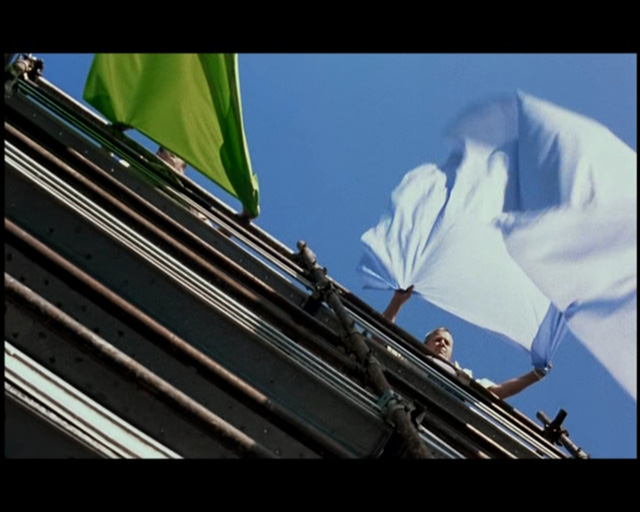
BP: Art is the engine that frees us from the slavery of mass of liberation that travels the deepest levels of our subconscious. In short, you refer to two important artists, Miro and Pollock, why this choice?
VM: I enjoyed the idea that a foreman was passionate about, Pollock. Just this.
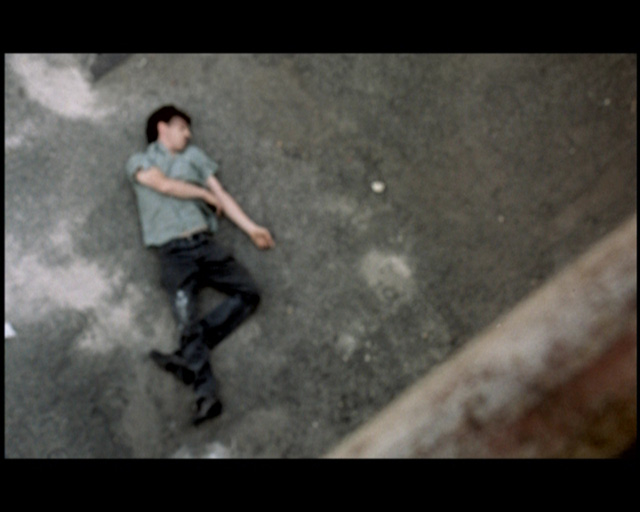
BP: The statistics of deaths on workplaces by the CGIL labor imply that today the situation has not changed, there seems to be a growth of undeclared work which therefore leads to a total loss of workers rights. Do politics and mass media give real importance to this problem?
VM: I think very little. I may not know exactly in terms of percentages but the fact that the press and media never lower their guard is a strong signal. Only in this way can you reach a public conscience that pushes, especially polititians, to respect the rules. It takes aknowledment and severity. There is little to be done.
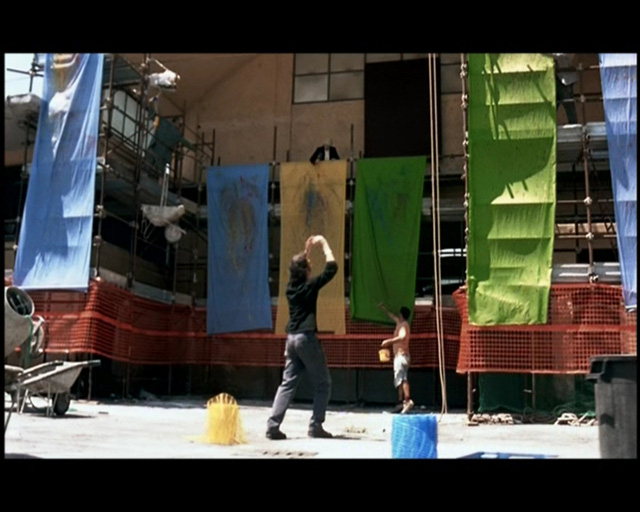
BP: The term refers to as “white death” refers to a murder without a culprit, then who is the murderer?
VM: It’s an annoying term. A phrase such as ‘there is nothing one can do’ gives it somekind of an angelical sense, a sense of unguiltiness. But the deaths that occur on the workplace are the ones that have more people to blame than any other. Everyone is responsible. Those who make the laws and do not enforce them, who knows and remains silent, who pretends nothing is wrong. Everyone is responsible.
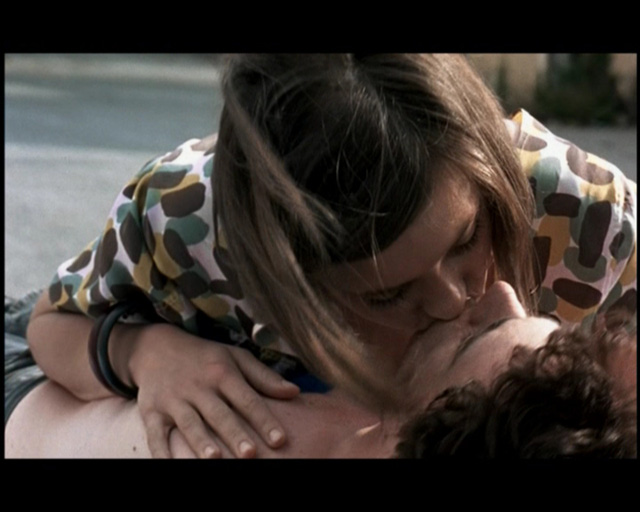
BP: What do you think about contemporary architecture in Rome? Architecture intended as a new social direction that could help the suburbs, suburbs that for many decades now have been victims of greedy construction companies and corrupt politicians.
VM: I do not understand much of contemporary architecture. We must not lose sight of man and his needs. A building of two kilometers can not but alienate those who live there and in the rest of the territory. It can not but be experienced as a prison of maximum security. The human dimension is important. It’s important to have a home and it’s important to interact with the community one lives in. Not only with the neighbours that live on the same landing. It is ‘important to have a small cinema instead of a dispersive and multiplex cinema. It’s important to have a library instead of a supermarket where you can also buy some books…well you get the point, I hope.
BP: I firmly believe in the pursuit of change, understood as an essential mission to disseminate contemporary issues, a process to pursue to pursue, because at the end this “Simple and contemporary history” can be changed.
Related Posts :
Category: Article
Views: 2259 Likes: 0
Tags: actor , attore , cortometraggio , interview , intervista , italian , Trevirgolaottantasette , valerio mastandrea
Comments:
Info:
Info:
Title: MODERN AND CONTEMPORARY HISTORY
Time: 12 marzo 2012
Category: Article
Views: 2259 Likes: 0
Tags: actor , attore , cortometraggio , interview , intervista , italian , Trevirgolaottantasette , valerio mastandrea

